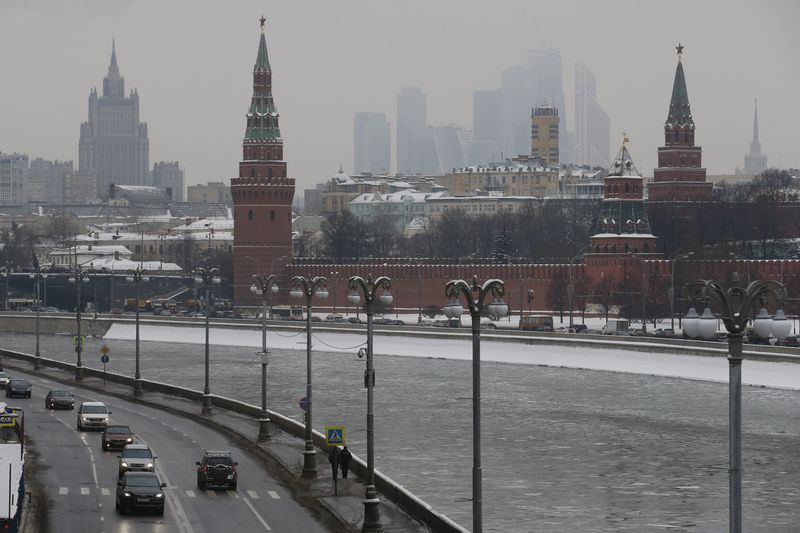By Darya Korsunskaya
MOSCOW (Reuters) - Russia plans to spend more than $50 billion (32 billion pounds) from its emergency Reserve Fund in 2015 as falling oil prices and a slumping economy cause the government's deficit to rise.
First Deputy Finance Minister Tatiana Nesterenko said on Friday the government would ask parliament to allow the spending of up to 3.2 trillion roubles (34 billion pounds) from the Reserve Fund in 2015, including 500 billion roubles already envisaged in the budget.
The increase means that Russia could spend well over half of the fund, currently worth $85 billion, in a single year - a rapid run-down of the fiscal buffers that underlines the precarious state of government finances.
Russia is presently revising its budget for this year, which was based on the assumption the oil price would be $100 per barrel - well above its current level of around $60 per barrel. Ministers have previously said the budget will now assume an average oil price of $50 per barrel.
Budget revenues are also much lower than expected because the economy is contracting, under pressure from Western sanctions imposed because of the Ukraine conflict as well as the lower oil price.
Nesterenko said in the worst-case scenario, the Reserve Fund could fall to as low as 1 trillion roubles by the end of the year, implying over 80 percent of the fund could be spent.
Earlier on Friday, she said the ministry projected a budget deficit of 3.7 percent of gross domestic product this year - a large increase compared with the 0.6 percent deficit originally planned for 2015.
The increase mainly reflects a large shortfall in revenues compared with previous plans. Nesterenko said these were now projected this year at 12.5 trillion roubles, down from 15.1 trillion envisaged in the budget.
Expenditures are seen at 15.2 trillion, slightly below the 15.5 trillion envisaged in the budget.
Nesterenko said that the budget projections would be even worse without some 1.07 trillion roubles in budget cuts, which the ministry believed should be larger.
The latest budget projections suggest that the ministry has largely failed in its efforts to persuade the government to impose bigger spending cuts.
They are more pessimistic than projections that were leaked to a Russian newspaper a week ago, which saw the deficit rising to 3.2 percent of GDP and 2.7 trillion roubles being spent from the Reserve Fund.
